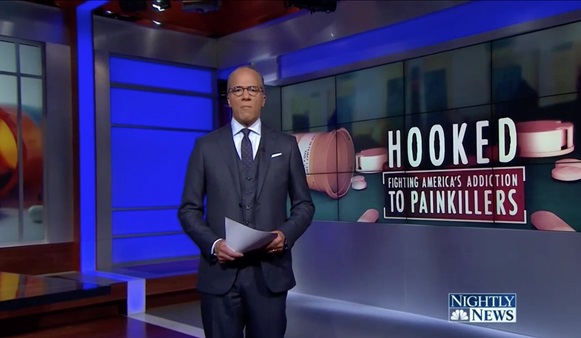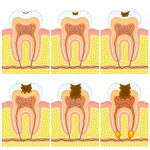[VIDEO] Tooth Pain and Opioids
The opioid epidemic is a devastating crisis that has swept the country. It leaves no community or population untouched. Unlike other drug epidemics our country has suffered, the opioid epidemic is particularly horrible in suburban communities—many just like those here in North Texas.
See the video HERE on NBC News.
Did you know that, every day, more than 130 people in the United States die after overdosing on opioids? The misuse of and addiction to these drugs—including prescription pain relievers, heroin, and synthetic opioids such as fentanyl—is a serious national crisis that affects public health as well as social and economic welfare.
You might be thinking, “how does this pertain to me or the dental community?” Here’s a fact that might surprise you: a study released in May of this year in the Journal of American Medicine found dentists in the U.S. prescribe opioids at a rate 70 times higher than dentists in England. It is due to this that our office is committed to providing our patients and community the best care possible—as well as transparency in what we do. We also want to inform our patients on what to look out for and encourage y’all to always feel comfortable asking us questions!
I didn’t know dentist prescribed opioids…
Interestingly, dentists are one of the top prescribers of opioids—second only to family physicians.
While most of our patients simply see us twice a year for their cleaning, some patients require much more intensive treatment. However, while a patient sometimes comes in for something serious, that doesn’t mean we automatically jump to prescribing opioids.
First, we always try other anti-inflammatory options to help with discomfort or pain. In addition, we also take into account a person’s medical history. If there is any history of substance abuse, we will look to prescribe other, non-additive medications. However, if after taking a complete medical history, if it is determined that an opioid is the best option, we discuss how to safely store and dispose of excess pills.
In many instances, it is not the patient that abuses the opioid, but a family member or guest who finds excess pills and uses them without medical permission. That’s a vital thing to keep in mind when storing opioids in your home.
And finally, when writing any prescription, we consult with the Centers for Disease Control and the state listening board to determine safe prescribing levels.
How can I be an informed patient when it comes to opioids?
First, we encourage all our patients to be engaged in their dental treatment and to ask questions should they have any concerns. The American Dental Association also has a section of their website dedicated just to patients looking for information. This comprehensive portal breaks down everything from what opioids are to how to dispose of leftover bills and how to reach out for help if you notice that you are struggling with an addiction.
What is Dr. H. Peter Ku’s office doing about it?
We understand that many of our patients have a fear of the dentist and avoid dental care due to fear of pain. If you have concerns about pain management before or after a procedure, please give our office a call today. In addition, we continue to work with the state board and the CDC to ensure our prescribing practices are meeting both state and federal standards.

![[VIDEO] Tooth Pain and Opioids [VIDEO] Tooth Pain and Opioids](https://fortworthtexasdentist.com/wp-content/uploads/bfi_thumb/dummy-transparent-n4u0c66qgza4bkqtzzyifo002v0t9a2aq0arqsubgy.png)




